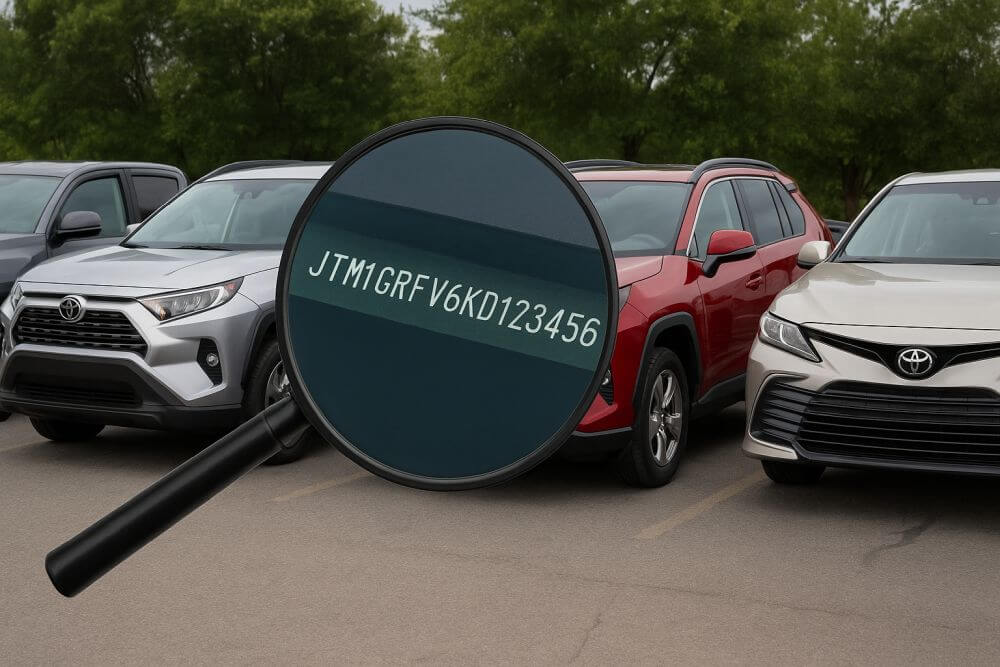Understanding the factors that impact your car’s value is crucial for both current owners and prospective buyers. Whether you’re planning to sell your vehicle or simply want to maintain its worth over time, knowing what affects value and how to improve it can significantly influence your decisions. A key tool in this process is a VIN check free, which provides essential insights into a vehicle’s history and specifications. This information is invaluable when determining a car’s market value.
From mileage to market demand, various elements contribute to the overall valuation of a car. By tapping into resources like a check car value by VIN, you can gain a comprehensive understanding of your vehicle’s worth. This is particularly important in the used car market, where informed decisions lead to better investments and sales outcomes. Let’s dive into the top 10 factors that can affect your car’s value and explore how you can leverage this information to your benefit.
Mileage
Mileage is one of the most significant factors affecting a car’s value. Generally, the higher the mileage, the lower the vehicle’s worth. This is because high mileage often correlates with wear and tear. To maintain your car’s value, consider using alternative transportation methods for short trips or implementing efficient driving habits to reduce unnecessary mileage accumulation.
Vehicle Condition
The physical and mechanical condition of a car is paramount in determining its value. A well-maintained vehicle with minimal dents, scratches, and a clean interior will fetch a higher price. Regular maintenance, such as oil changes and tire rotations, and addressing minor repairs promptly can help uphold your car’s condition and, consequently, its value.
Service History
A comprehensive service history can significantly boost a car’s value. Buyers often prefer vehicles with documented maintenance records, as they assure reliability and proper care. Keep all service records and receipts organized and accessible to present them to potential buyers when needed.
Make and Model
Some brands and models hold their value better than others due to reputation, reliability, and market demand. Researching the resale value of your car’s make and model can provide insights into its potential depreciation rate. Opting for popular and reliable brands when purchasing a vehicle can be advantageous for long-term value retention.
Market Demand
Market demand can fluctuate based on various factors, including economic conditions and consumer preferences. Vehicles in high demand tend to retain their value better. Staying informed about market trends can help you decide the best time to sell your car for optimal returns.
Age of the Vehicle
Age is another critical factor impacting car value. Newer cars typically have higher values, which depreciate as the vehicle ages. However, some classic cars may increase in value over time due to rarity and collector interest. Understanding the aging pattern of your car can guide your selling strategy.
Color
The color of your car might seem insignificant, but it can affect resale value. Neutral colors like black, white, and silver are often more desirable in the market, potentially leading to a higher resale price. While personal preference should guide your choice, considering popular colors when buying a car can be beneficial.
Vehicle History
A car with a clean history report—free of accidents, legal issues, or major repairs—tends to maintain its value better. Utilizing a VIN decoder can provide transparency and confidence to potential buyers by verifying the vehicle’s history. This step is essential in building trust during a sale.
Modifications
While some modifications can enhance a car’s performance or aesthetics, others might negatively impact its resale value. Buyers may view extensive modifications as a risk. If you plan to modify your vehicle, consider the potential impact on its future value and opt for changes that enhance rather than diminish appeal.
Fuel Efficiency
In today’s environmentally conscious market, fuel-efficient vehicles are in higher demand. Cars that offer better fuel economy can command a higher price due to their lower operating costs. If your vehicle is fuel-efficient, highlight this feature during a sale to attract eco-conscious buyers.
VIN Decoder Connection
The Vehicle Identification Number (VIN) is a unique code that provides detailed information about a car’s specifications and history. Using a VIN decoder, such as the one offered by VinCheckPro, helps you access crucial data that can impact your vehicle’s value. Understanding this information aids in making informed decisions, whether buying, selling, or maintaining a car. Access VinCheckPro’s free VIN decoder at VinCheckPro to gain valuable insights into your vehicle’s background and enhance your selling strategy.
Frequently Asked Questions (FAQ)
How can I improve my car’s resale value?
Regular maintenance, keeping service records, minimizing mileage, maintaining the vehicle’s appearance, and understanding market demand can improve your car’s resale value. Avoid unnecessary modifications and ensure any changes enhance the car’s appeal.
Does a VIN check affect my car’s value?
While a VIN check itself does not directly affect your car’s value, it provides essential information about the vehicle’s history, which can influence buyer perception and trust. A clean VIN report can enhance your car’s appeal to potential buyers.
What role does market demand play in car value?
Market demand significantly influences car value. Vehicles in high demand retain their value better and sell faster. Staying informed about trends can help you time the sale of your vehicle for maximum returns.
Are older cars always worth less?
Not necessarily. While most cars depreciate with age, some classic or rare vehicles may increase in value over time due to collector interest. The key is to understand the specific market for your vehicle type.
Can cosmetic damage affect my car’s value?
Yes, cosmetic damage can reduce your car’s value as it affects the vehicle’s appearance and perceived maintenance level. Addressing minor damages promptly can help maintain your car’s value.

